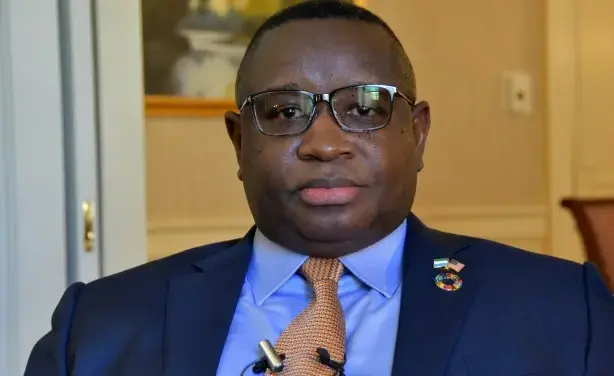Nigeria’s political landscape was shaken Wednesday when a splinter group emerged from the cold to claim that the country’s ruling party, the All Progressives Congress (APC), no longer served its interest, alleging a reign of impunity by the party leadership.
The splinter group is peopled mostly by the aggrieved members of the new Peoples Democratic Party (nPDP) bloc of the party and have since branded themselves as Reformed All Progressives Congress (R-APC).
Buba Galadima, a former ally of President Muhammadu Buhari, announced the formation of the new group at a press conference in Abuja on Wednesday.
Leader of the nPDP, Alhaji Kawu Baraje was present at the press conference where the announcement was made.
Accusing the party leadership of impunity, Galadima said that the local and state congresses as well as the national convention of the APC were a sham and largely undemocratic.
Read Also: Police authorities claim 41 bodies found in Zamfara, Northwest Nigeria
“The nPDP, a group that has made a major contribution to the emergence of the APC administration, has made strenuous efforts to invite attention to inequities, injustice and poor management in our party without any success.
“The nPDP had shown good faith and commitment to the party, but it has been rewarded with indifference and even contempt. It is obvious that the leadership of the APC has decided to shut out members of the APC, as well as other members who have raised genuine grievances and a desire to improve the responsiveness of the APC to the desire of members for a party founded on democratic principles.
“Under the circumstances, patriotic elements and most of the original founders of the APC have found themselves in the opposing side of this charade.
“Most of the delegates who bought and paid for forms for the congresses and convention and were elected as delegates have come together to take control and give legitimacy to APC to be now known as and called Reformed – APC (R – APC),” Galadima said.
Influential members of the ruling APC who have, directly or indirectly, been associated with R-APC include Senate President Bukola Saraki, Speaker of the House of Representatives, Yakubu Dogara, former governors of Kano and Adamawa states, Rabiu Kwankwaso and Murtala Nyako.
In his initial reaction, the newly elected National Chairman of the ruling party, Adams Oshiomhole, pleaded for patience in dealing with the insurrection in the party.
Opposition has continued to mount against the second term bid of President Muhammadu Buhari who has been severally accused of nepotism, and mal-administration. Prominent voices against his reign include former Presidents Olusegun Obasanjo, and Ibrahim Babangida.
How much damage the fresh upheaval will wreak on Buhari’s 2019 aspirations remains a subject of permutations. In spite of seeming waning influence, largely a result of insecurity issues, Buhari continues to maintain a stronghold in the northern half of the country, a political asset that could be deployed to full advantage in 2019.




































